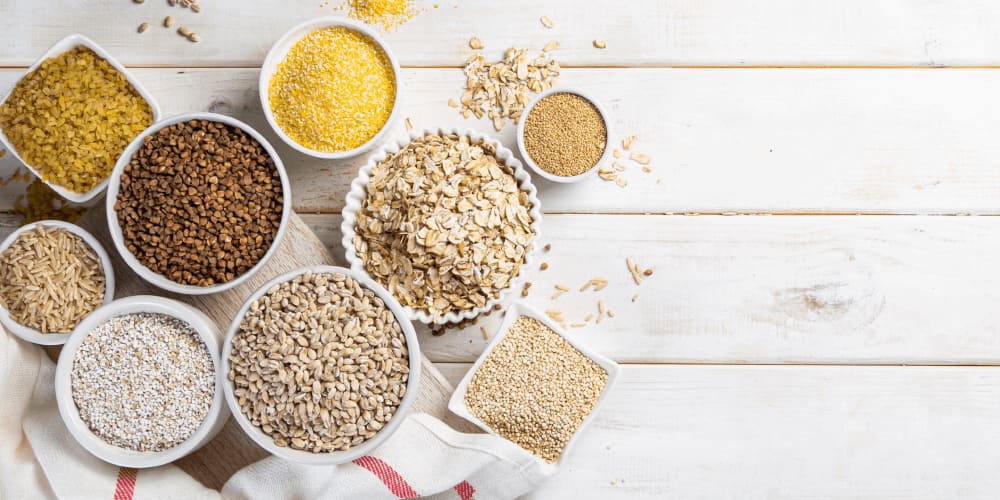Other than increasing fibre and fluid intake, there are other dietary management steps that can be taken to improve digestive comfort and wellbeing. A holistic, healthy intake of a variety of foods and nutrients affects many aspects of health in the body, including the digestive system.
Listed below are general dietary management tips to be incorporated on a daily basis to better support digestive wellbeing:
- When selecting starchy foods, opt for unrefined carbohydrate sources, which also offer a source of fibre. For example, choose a high fibre breakfast cereal, choose brown or whole grain bread over white, opt for whole grain pasta and crackers and leave the skin on potatoes in potato dishes.
- In general, enjoy a varied diet that includes lean protein from both animal and plant sources as well as plenty of fruits and vegetables.
- Increase fibre intake gradually, allowing the gut enough time to adapt to the change in the fibre content of the diet. Severe increases in fibre intake over short periods of time can lead to bloating and discomfort. Start with small amounts of high fibre foods and increase intake slowly while monitoring the digestive response.
- Avoid over-consumption of stimulants such as alcohol, caffeine and tobacco which also tend to irritate the gastrointestinal tract and may cause digestive disturbances. Over-consumption of carbonated beverages and frequent gum chewing has also been associated with bloating and discomfort.
- Take time to relax, be seated and enjoy meals slowly as opposed to guzzling food down quickly while standing or walking. It is also important to ensure that food is chewed properly.
- Ensure intake of fibre occurs in conjunction with adequate fluid intake. As a general guideline, adult men need about 13 cups of fluid from drinking water and beverages per day, and women need about 9 cups.

